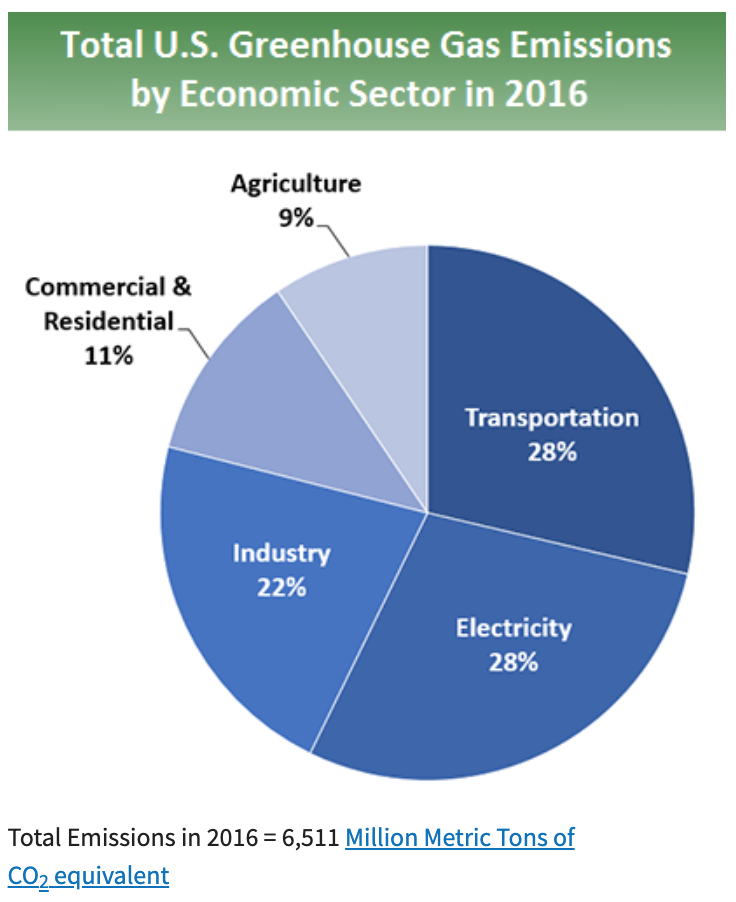

Short of removing yourself from the grid and living off the land, most of us require some sort of job to help feed our families. Such is society, we often cannot easily change jobs with the requirement of specific skills governing our workplace. But transitioning to a sustainable lifestyle was never going to be easy. So who should be accountable for the CO2 footprint of industry: the workers; the consumer / end user; or company management? The only party that can control a company’s carbon footprint are those who direct the policy. This is the same for governments. Surely those who make these decisions should take on the carbon costs. They have no issue taking profits.
The EPA tells us the primary source of green house gases in the US can be broken down as follows:

A report from the OECD breaks it down even further: Around 90% of total CO2 emissions are attributable to 10 industries that account for just 16% of total employment (Agriculture, hunting and forestry; Fishing; Mining and quarrying; Electricity and gas; Inland transport; Air transport; Water transport; Other supporting and auxiliary transport activities; Activities of travel agencies; Coke, refined petroleum and nuclear fuel; Chemicals and chemical products; Other non-metallic mineral; Basic metals). This type of disparity does not seem fair.
But transitioning from these industries won’t be easy. There are financial implications of retraining into other skills or starting at the bottom rung in a new industry. You may have to relocate yourself to another city.
Data from the most polluting sectors indicates that those at an elevated risk of displacement are facing the most difficulty reintegrating into other employment. Low-qualified workers are overrepresented in agriculture, mining and inland transport, while older workers are overrepresented in agriculture and water transport. Workers in these industries also tend to live in remote areas where there are fewer opportunities for employment.
But these sectors can change. Working for an electric company won’t be all bad if that company is supplying 100% renewable energy. Nor will driving for a transport company that optimizes shipping and utilizes sustainable practices. Working on a farm that supplies only organic produce and grass fed livestock to a farmers market will be much more sustainable. Finding employment close to your residence, taking shared transport or walking/cycling your commute will make a difference.
The thing about transitioning to a sustainable lifestyle is that it won’t happen overnight. We all need to take the small steps now to start this journey. And the more steps we take, the path will become easier, especially as more people join us.
So while the green policies should be met with applause, they will also create an expanded need to support displaced workers, and this should be a part of the policy. There is not a one solution fits all scenario. But these strategies are necessary to stop the irreversible effects of climate change.
We challenge you to find out exactly how sustainable the company you work for is. We challenge you to try and find better ways to make your workplace sustainable. We challenge you to lead the change from within. Only then will companies begin to take notice. Be proud of the company you represent.




